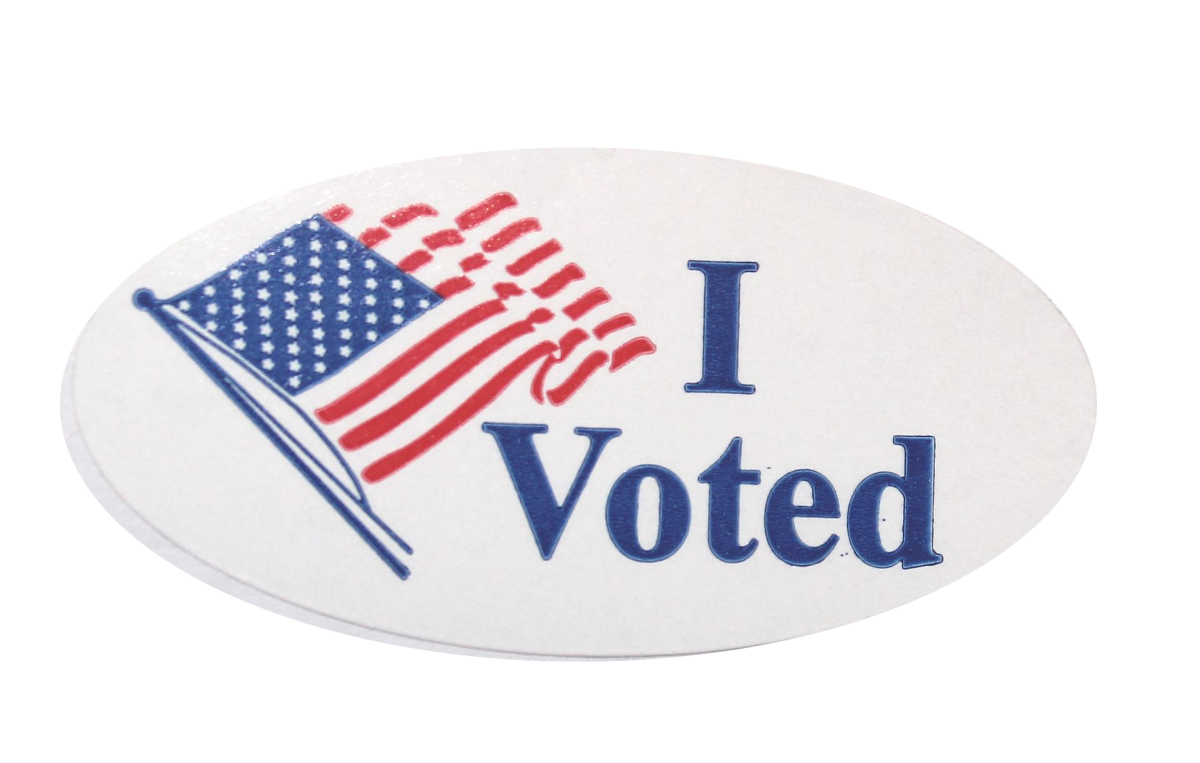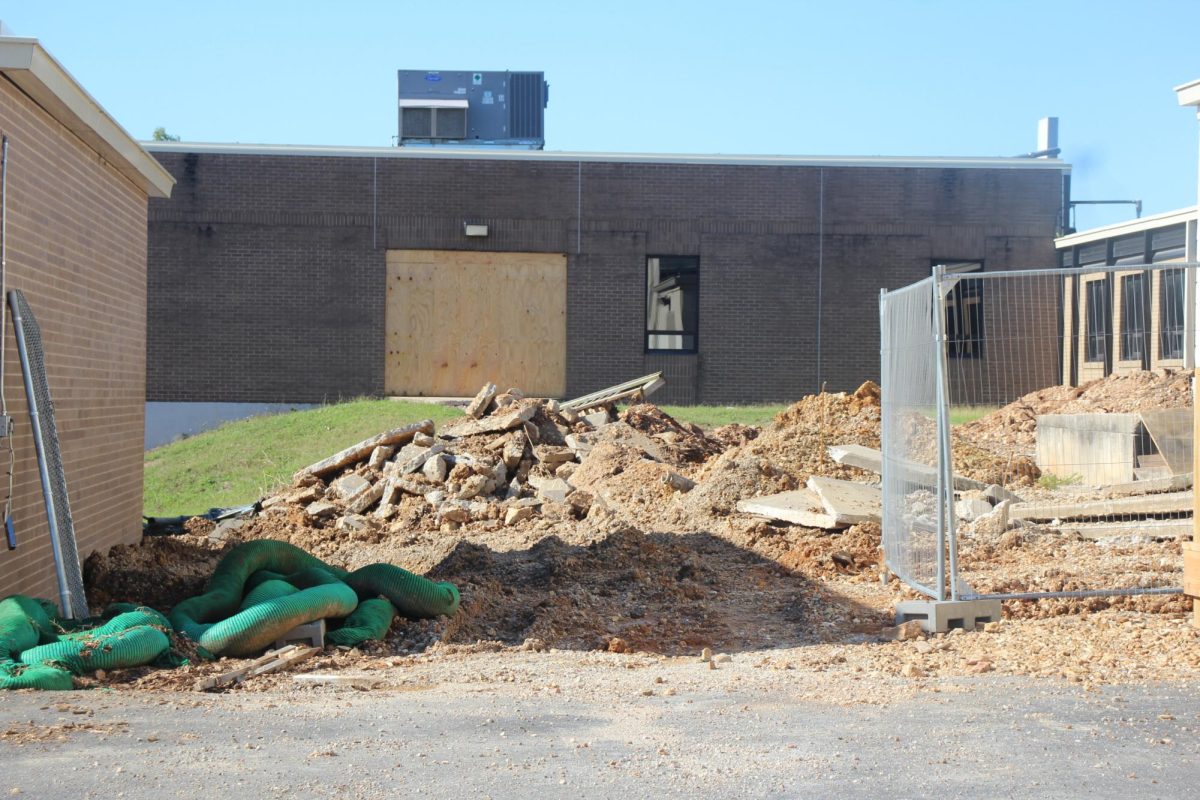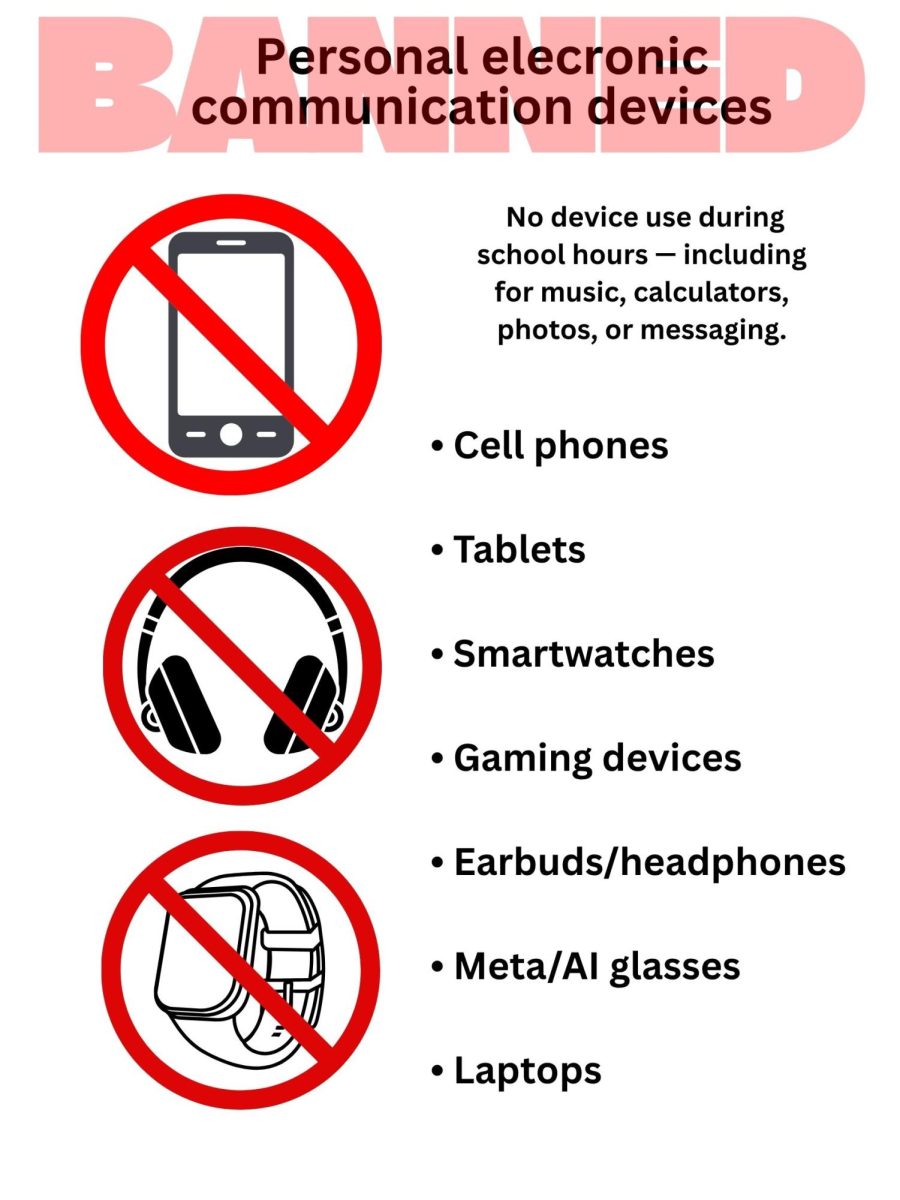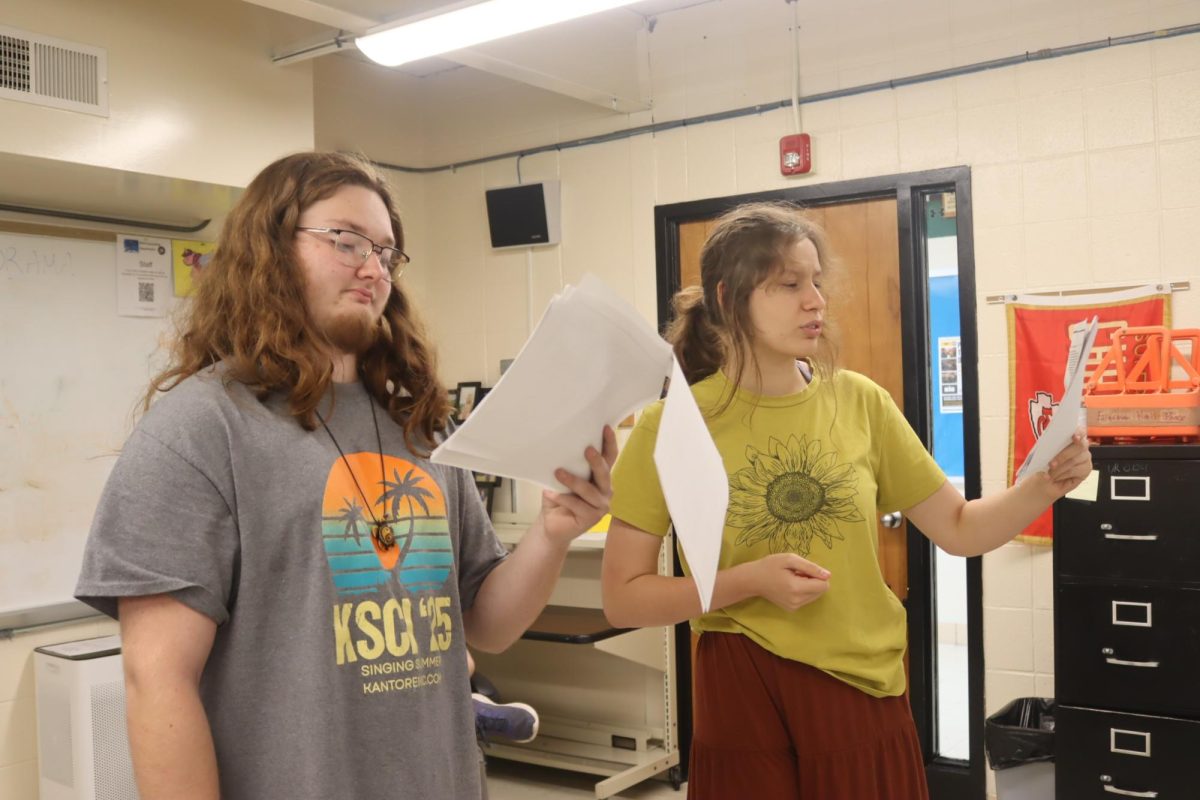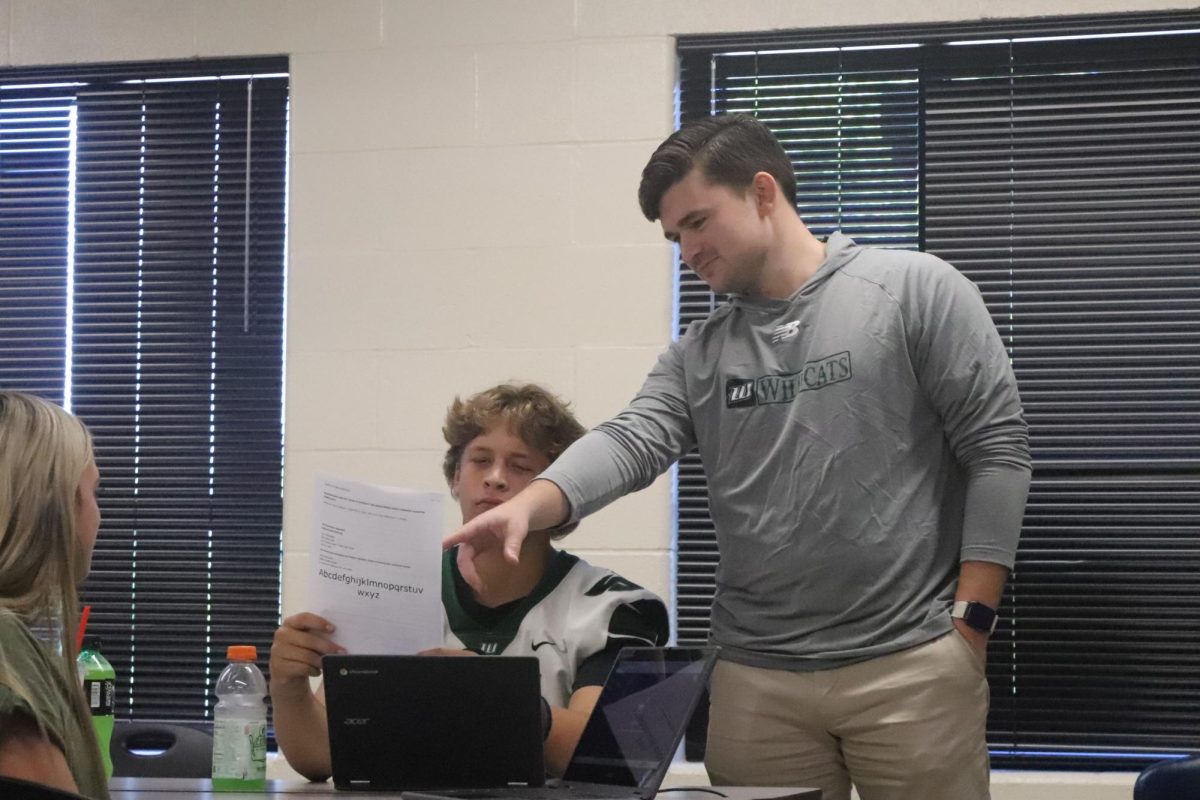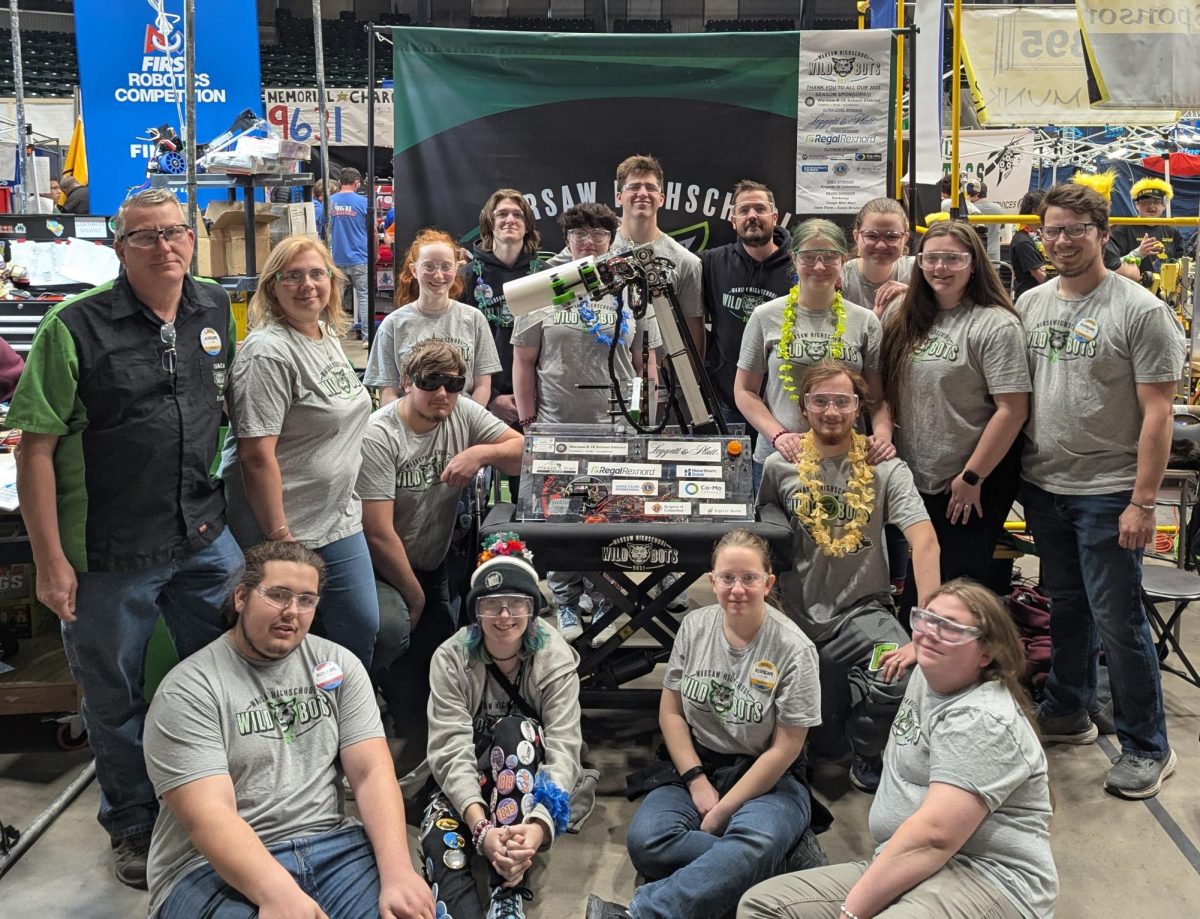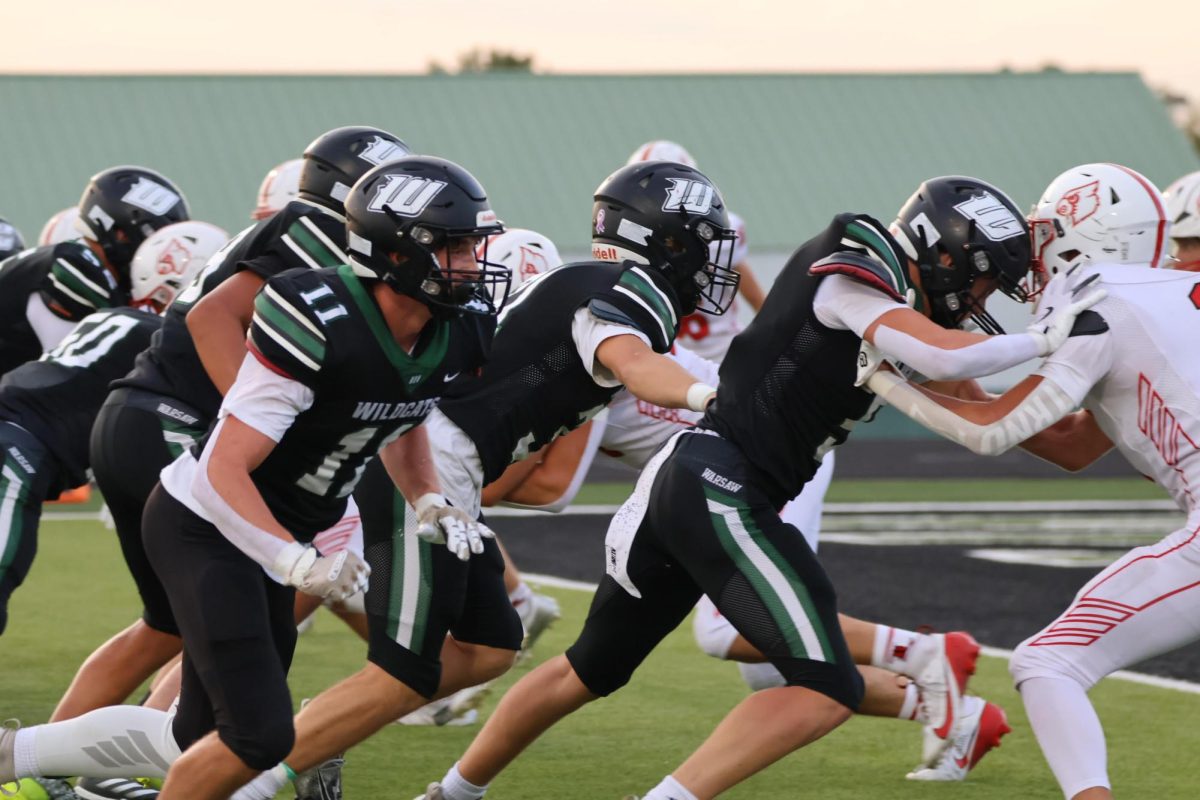This November 5, the 2024 presidential election is scheduled to be held. Although most students cannot vote yet, a few seniors such as Daliyah Cayton-Fishburn, Samantha Harr, and junior Kaleb Ragle, are able to vote.
Cayton-Fishburn feels obligated to vote in this election.
“Because it’s my duty as a citizen,” Cayton-Fishburn said.
Ragle said he was voting because his vote counts and Harr said she wants her voice to be heard.
“I feel like I need to put my opinion out,” she said.
According to KFF, an independent polling organization, the number of people who voted in November of 2022 between the ages 18 and 24 was 28 percent of the voter population and, according to Tufts Circle, 50 percent of young people ages 18-29 voted in the 2020 presidential election.
So what’s so important about participating in elections? Government teacher Nathan Copling says that “participating in elections is important because it’s a foundation of our democracy. Elections are also important because it allows you to choose who’s going to represent you and, three, you should do it because it’s a benefit of being an American. If not, then what’s the point of being here? It is a protective right. You should do it, if not then go to Russia.”
Harr says she has been looking forward to voting, “because it will be my first time and I’m excited to see how it goes.”
New voters might not feel educated enough to be confident on who they want to vote for. Copling has some advice about getting educated on election candidates
“Start local, read local newspapers, read state newspapers, find sources on Twitter (X) or Facebook….. things that are honest. Really try to talk to your parents and grandparents and talk to people you live with trying to figure out where they are. You can ask teachers,” he continues, “it comes down to you; you gotta read, you gotta see which people are running, why are they running, and what they are running for.”
Copling picks candidates who describe most of his own values and morals and beliefs.
Harr used social media to help her get educated on candidates.
Some candidates who have been voted into office, whether that be House of Representatives or Senate they have not held up to their promises. Copling says when that happens we vote for them to stay in office or to get out of office.
Copling also explains that it is difficult to keep all of their promises
“You vote with the understanding that they will try to seek to accomplish some or all of their aims but we know that that’s impossible for a myriad of reasons.”
He explains that because the House of Representatives and Senators have short terms because there are two of them and it is hard to get everything they promised done before their term is up.
Voting needs to be taken seriously because, for the presidential election, it decides who leads America. Copling said voting should be taken seriously.
“Because we have the ability to control who makes our rules,” he said.
In addition to voting for president, national representation in the legislature and state seats, voters will also weigh in on other issues. The state amendments on the ballot will be No. 2 (legalizing sports betting), No. 3 (right to reproductive freedom), No. 5 (Osage River gambling boat license initiative), No. 6 (levying of fees to support salaries of law enforcement personnel) No. 7 (require citizenship to vote and prohibit ranked-choice voting), and there will be Proposition A (minimum wage and earned paid sick time initiative). The Cole Camp Ambulance wants to raise tax by $0.20 per one hundred dollars.
Voting will also include the President and Vice President, Senator, Secretary of State, State Treasurer, Attorney General, United States Representative for District 4, State Representative for District 57, South District Commissioner, Sheriff, Assessor, Coroner, Surveyor, and Public Administrator.
The Judicial Ballot will include judge retention for Western District Court of Appeals and Missouri Supreme Court.

